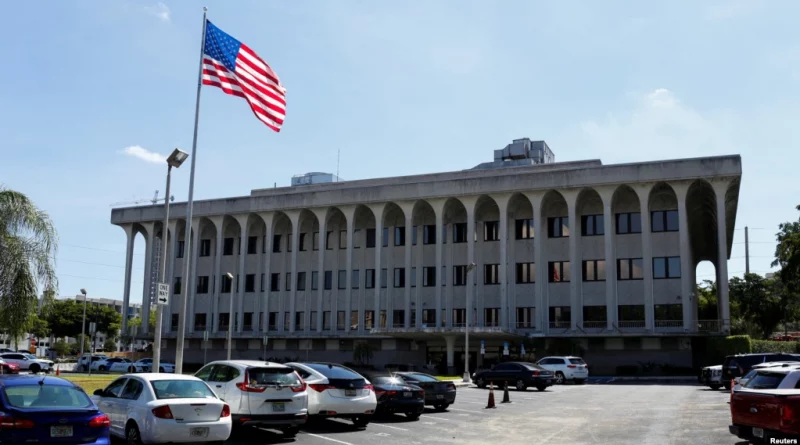Court grants Trump’s motion to appoint a special expert to analyze documents seized by the FBI
Court grants Trump's motion to appoint a special expert to analyze documents seized by the FBI
A federal judge granted Donald Trump’s request to appoint a special independent expert to review documents seized by the FBI in an unprecedented search of the former president’s Florida estate that could slow the Justice Department’s ongoing investigation.
In her ruling, Circuit Court Judge Eileen Cannon in West Palm Beach, Florida, said the court authorized the appointment of an expert to examine personal effects, documents and materials subject to attorney-client privilege.
Cannon was appointed by Trump in 2020, just months before the end of his presidency.
Trump has accused the Justice Department of bias in the ongoing investigation against him, and his attorneys have argued that appointing an independent third party to review the seized materials would be an important deterrent to the government.
Trump is under investigation for taking government documents, some marked highly classified, and storing them at his Mar-a-Lago home after he left the White House in January 2021.
Cannon’s court order allows intelligence officials to continue analyzing possible national security damage from Trump’s seizure of classified documents.
The Justice Department also said it was investigating possible obstruction of justice after the FBI found evidence that Trump’s team may have intentionally concealed classified documents when agents tried to get them back in June.
At the same June 3 meeting, Trump officials confirmed, contrary to the truth, that they had conducted a thorough search and returned all classified material to the government, a claim that was later rebutted after the FBI discovered about 33 boxes containing more than 11,000 government files and photos and more than 100 documents marked classified.
Trump’s lawyers waited about two weeks after the Aug. 8 FBI search before asking the court to appoint a special expert, an independent third party sometimes appointed in sensitive cases to examine materials that might be subject to attorney-client privilege.
The special expert was appointed, for example, to examine materials seized in searches of the homes and offices of two former Trump attorneys, Rudy Giuliani and Michael Cohen.
But Trump’s request was unique: Not only did his attorneys want the expert to review materials that are traditionally subject to attorney-client privilege, they also requested that a special expert be appointed because some documents may be subject to executive privilege.
The DOJ, however, argues that Trump cannot invoke executive privilege because the documents belong to the government, not him.
The DOJ also stated that there was no point in appointing a special expert because a team of DOJ agents not involved in the investigation had already completed their work.
Many former Justice Department attorneys, both Democrats and Republicans, have denounced Trump’s motion to appoint a special expert.
Former Attorney General Bill Burr, whom Trump appointed, called the special expert a “waste of time” in an interview with Fox News.
A group of former federal prosecutors, all of whom worked in Republican administrations, also filed an expert opinion on the case, saying Trump’s request was “unprecedented” and “clearly not serious.”
